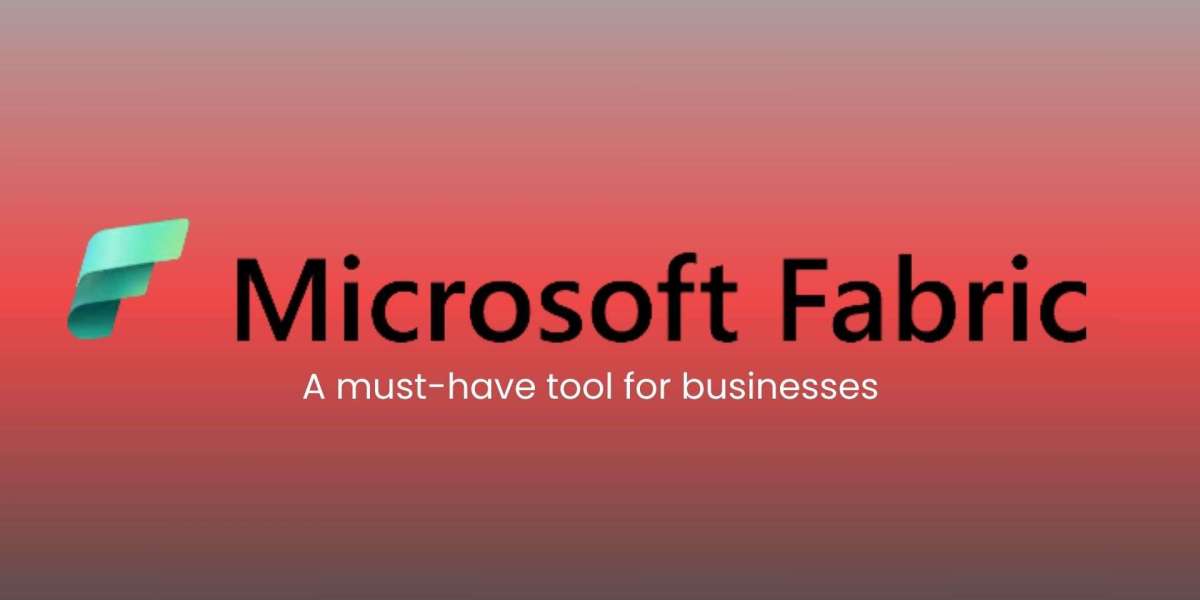Microsoft Fabric empowers enterprises on the Data front by combining various advanced data engineering and analytics solutions. Enterprises with Microsoft Fabric integrated into the system experience faster decision-making, real-time insights, and faster response to customer queries. It simplifies the complexities involved in data operations.
Microsoft Fabric hosts multiple workloads in one platform – Data warehouse, real-time business intelligence, Data Factory, engineering, and data science. Everything related to your data solutions is under one roof. By consolidating all these features under one platform, Microsoft Fabric helps enterprises reduce the complexities and overhead costs they experience while managing different standalone tools for their data operations.
It's a unified platform for all your data operations, freeing up resources and solving your data challenges. What is the purpose of launching Microsoft Fabric, you ask?
Microsoft wanted to move all enterprises from fragmented data tools to one unified platform, which would save time and effort and deliver results faster.
How Microsoft Fabric is impacting enterprises
Microsoft's AI-powered tools help in the development process
Fabric gives enterprises more power with its AI-powered tools for their development processes. It automates the entire data workflow and other activities that require manual intervention. It optimizes and speeds up the deployment and iteration process for developers. With these AI features, developers maintain high accuracy and performance in their data operations.
AI-driven data estate for managing data coming from multiple clouds
Enterprises have stored their data on multiple clouds, causing them trouble. They need to spend a lot of money on managing multi-cloud solutions. Microsoft Fabric's AI-powered data set solves this challenge by simply collecting and storing data from various data sets and sources into one single data lake, enabling enterprises to have unified access. Moreover, it requires less manual intervention, resulting in fewer errors while handling data from different sources such as GCP and AWS. With this feature, enterprises need not abandon their multi-cloud strategies because, with Fabric, they can unify all of them in one place. Plus, integration is very smooth.
Let's talk about the latest innovations or features added to Microsoft Fabric.
It is continuously evolving with more powerful features aimed at simplifying processes and improving the efficiency of enterprises. Whether it is data engineering, data ingestion, or analysis, Fabric has everything under one roof to streamline and simplify your data management.
Data ingestion and engineering
Fabric's Copy job provides enterprises an innovative solution for ingesting large data volume. It enables them to ingest data at petabyte scale. Moreover, there is no need of traditional data flows and pipelines with Copy job. It simplifies the entire ingestion process, reducing operational complexities involved with data operations.
It has batch, full and incremental copying feature that provides flexibility to the enterprises to determine how data will be transferred from various sources effectively.
Moreover, Microsoft Fabric has improved its Spark engine, a tool that processes large volumes of data faster, by adding new features. Now, the Spark engine operates queries 4 times faster since it operates directly on Lakehouse, which reduces the wait times in data processing operations. Microsoft fabric also supports mirrored datasets that adds one more layer in data engineering process, enabling enterprises to generate query for duplicated data without adding any extra load or latency.
Real-time intelligence and insights
Enterprises need faster real-time insights to stay competitive and agile in the market, and Microsoft Fabric is listening to them. Its real time hub is revamped to provide a better user experience and simplifies data streams. With this enterprise can have better insights instantly.
This kind of intuitive user interface is built for enterprises where real-time decision-making impacts their performance.
Microsoft also has added My Streams, a feature that enables users to manage their personalized streams. With personalized streams, enterprises would have better control over their data, which would help them track KPIs and measure performance.
The personalization feature reduces the extra data noise for enterprises, helping them to capture only relevant information.
OneLake integration for easy data migration
With Microsoft Fabric, enterprises get Data Gateway Shortcuts for external sources such as AWS and GC. With this feature, enterprises easily integrate data coming from various sources into OneLake without much friction.
This kind of smooth integration reduces the complexities involved in the data operations and optimize the flow between data stored and analytics tools, delivering faster insights to the users.
Factors to be considered by CIOs while adopting Microsoft Fabric
There are various components of Fabric, such as Azure Data Factory, which got more recognition in the market because of their easy-to-use interface and powerful performance. But Synapse struggled to achieve that momentum.
Certainly, Microsoft fabric is the unified data platform which combines various tools and features, but enterprises still need to assess where it meets their requirements or not. Switching your data platform is not an easy task, therefore you need to consider this option after assessing your existing challenges and opportunities keeping Microsoft Fabric in mind.
One concern that most of the CIOs highlight the complexities involved in implementing the Microsoft Fabric. There comes the significance of a certified tech partner to solve this implementation challenge. Saxon AI is one of the certified tech partners of Microsoft, helping enterprises across industries in exploring the real potential of their data using Microsoft Fabric
Microsoft is very serious to upgrade and advance its Fabric platform by adding advanced features and capabilities so that it outperforms its rivals from the data operation market. When it comes to data operations, Microsoft Fabric has everything to offer you a powerful way to manage your operations.








